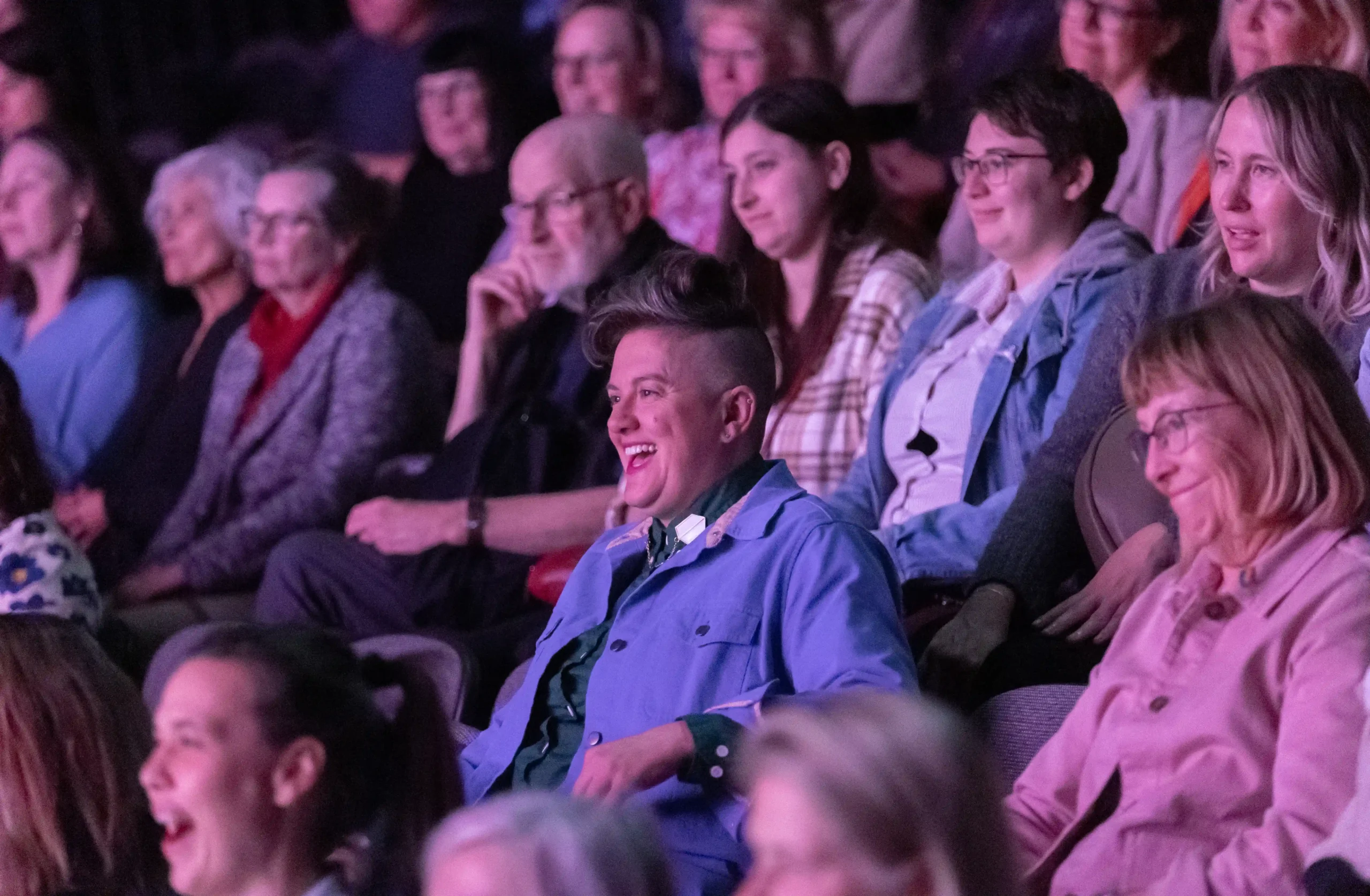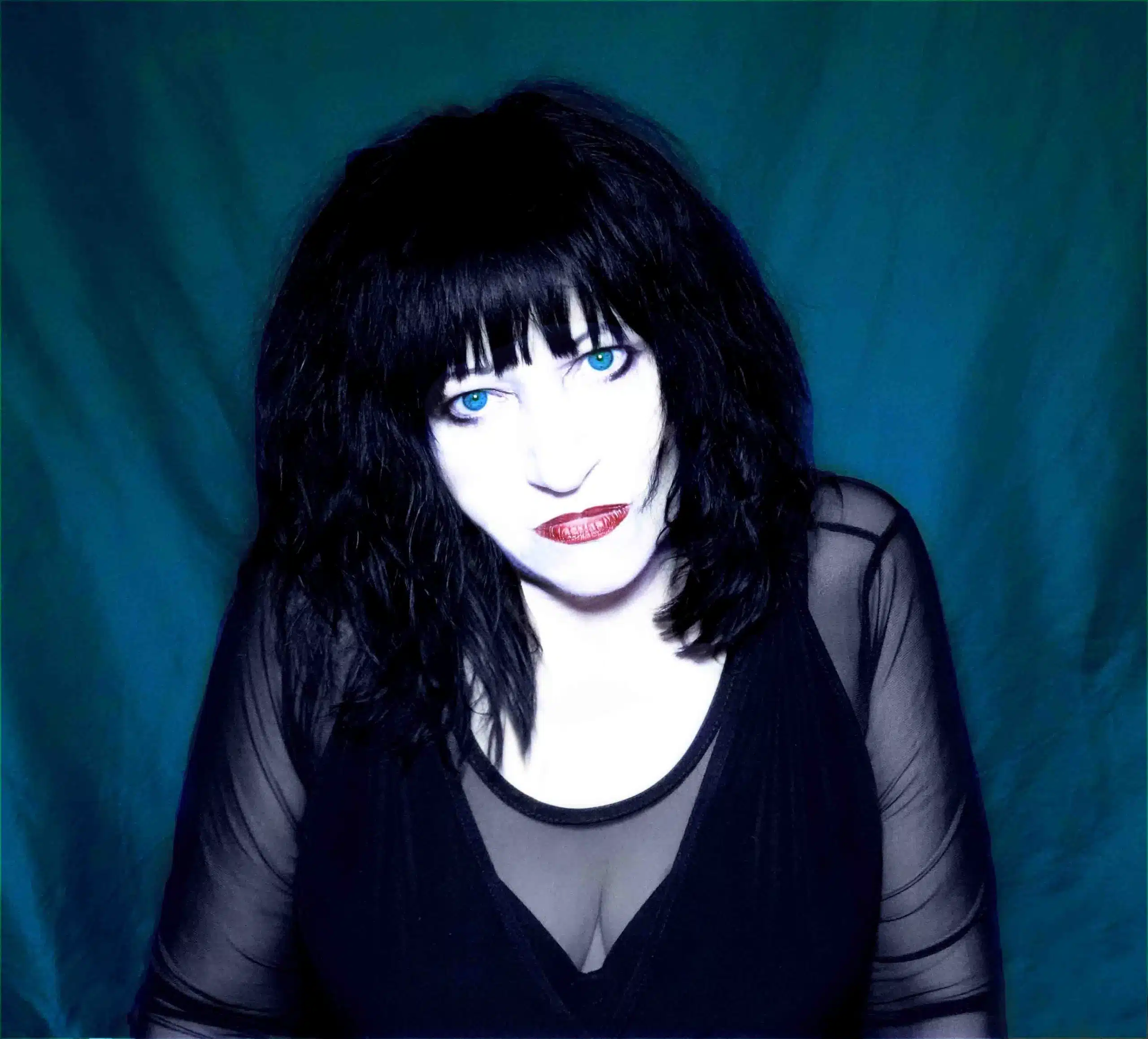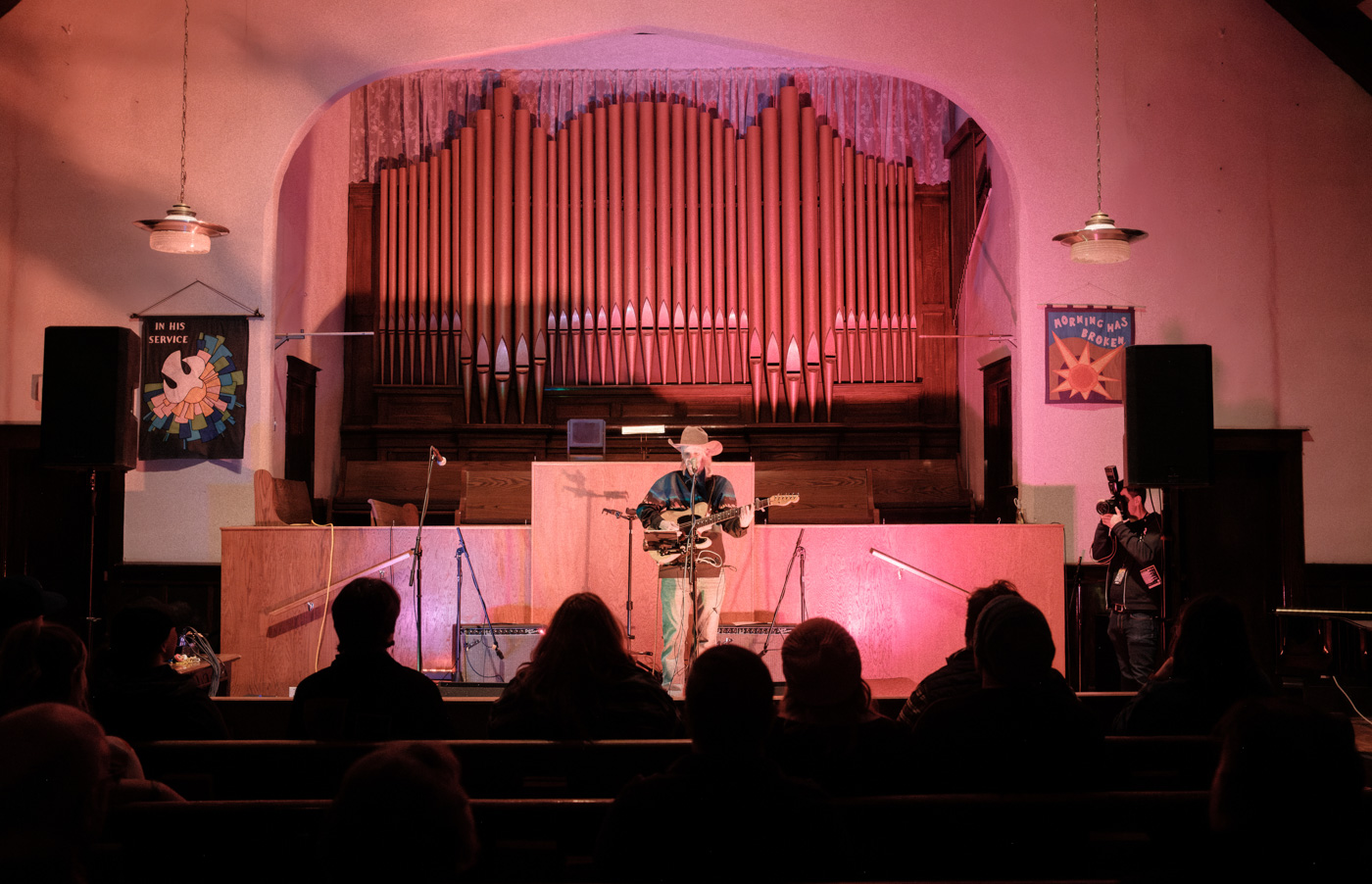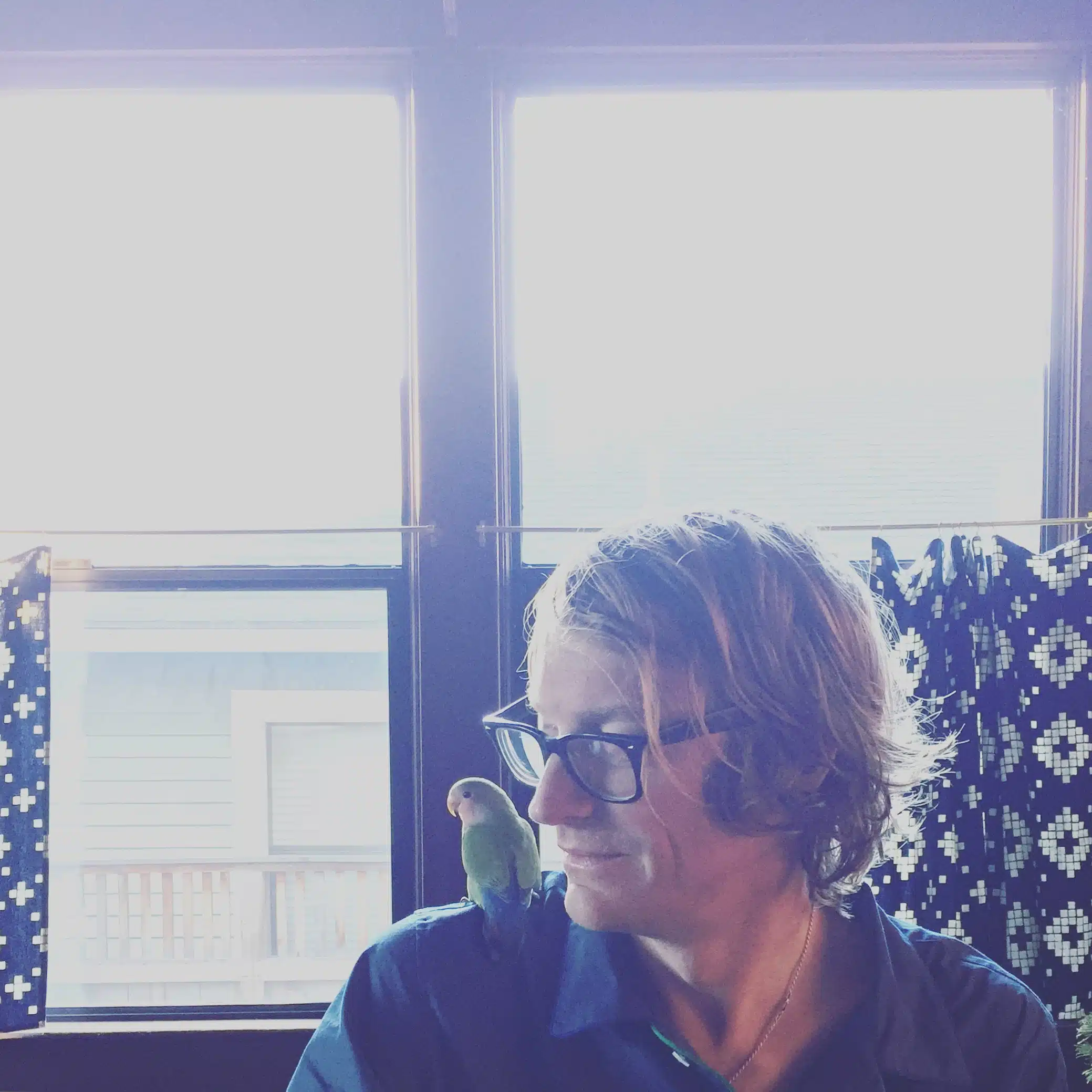To a person who loves to read, getting lost in the pages of a good book feels as essential as breathing. Perhaps even more so in a world where daily news headlines induce anxiety, where political divides seem insurmountable, and where even the very thing readers love — books — are being banned.
The smell of binding glue, the feel of paper under your fingertips, and the ritual of opening a new book feel like a balm on a burn. Turning the last page and absorbing the finalé of your chosen read feels satisfying at first, but to a person who loves books, the “end” will never satiate the thirst for more.
Enter the Imaginairium, Wordfest’s annual festival celebrating all sorts of “wordy goodness,” where the intentionally crafted mix of “shows” — yes, shows, not lectures or readings — is designed to spark ideas, conversation, and quench the proverbial thirst.
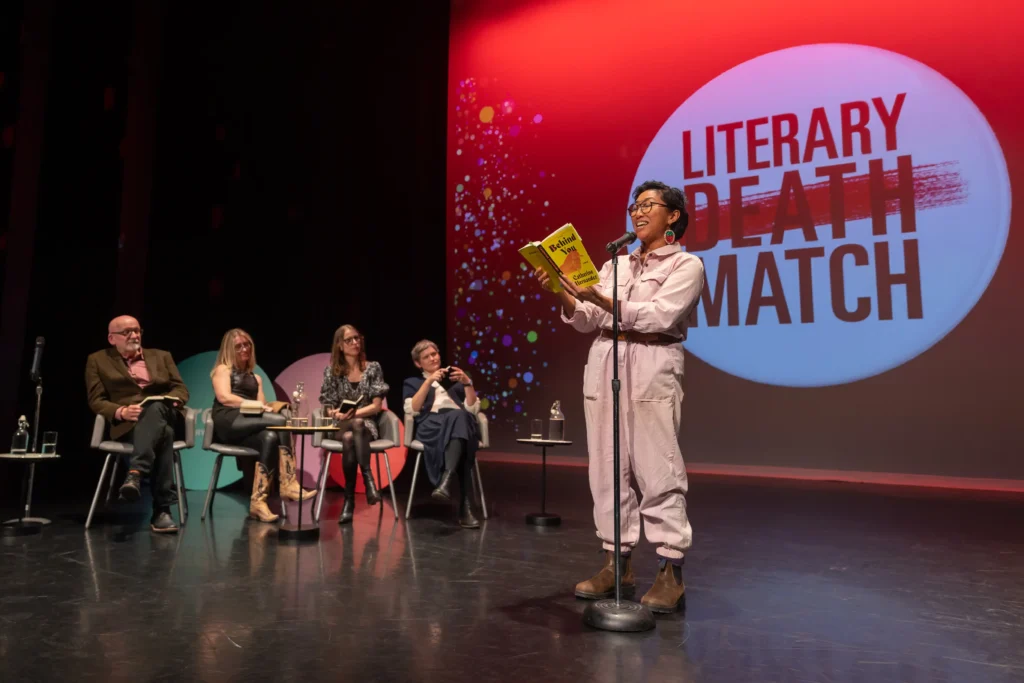
“We very deliberately call everything a show. They are created to be full-blown, multi-dimensional experiences,” says Shelley Youngblut, CEO and “Creative Ringleader” with Wordfest. “I call them idea jazz. We never know what’s going to happen, but we set all the ingredients on the stage and that way we get both the author and the audience in mind to have a really great event. It becomes spontaneous joy.”
Now in its 30th year, the festival is somewhat of an anomaly; a cultural bright spot that draws famous authors from within and beyond Canada’s borders. Many of which return again and again.
“We bring out the best in the authors, we bring up the best in the audience, and we need that authentic, generous, hopeful, activating community right now more than ever,” says Youngblut.
Yet, the Imaginairium and Wordfest’s annual programming do not serve the masters of the pen drawn to its wordy haven. As Youngblut explains, the festival is for readers, not writers.
“We foster a connection that is authentic, real and lively between an author and their reader. By being so reader-focused, we were able to look at what readers wanted,” says Youngblut. “And so here we are, 30 years later.”
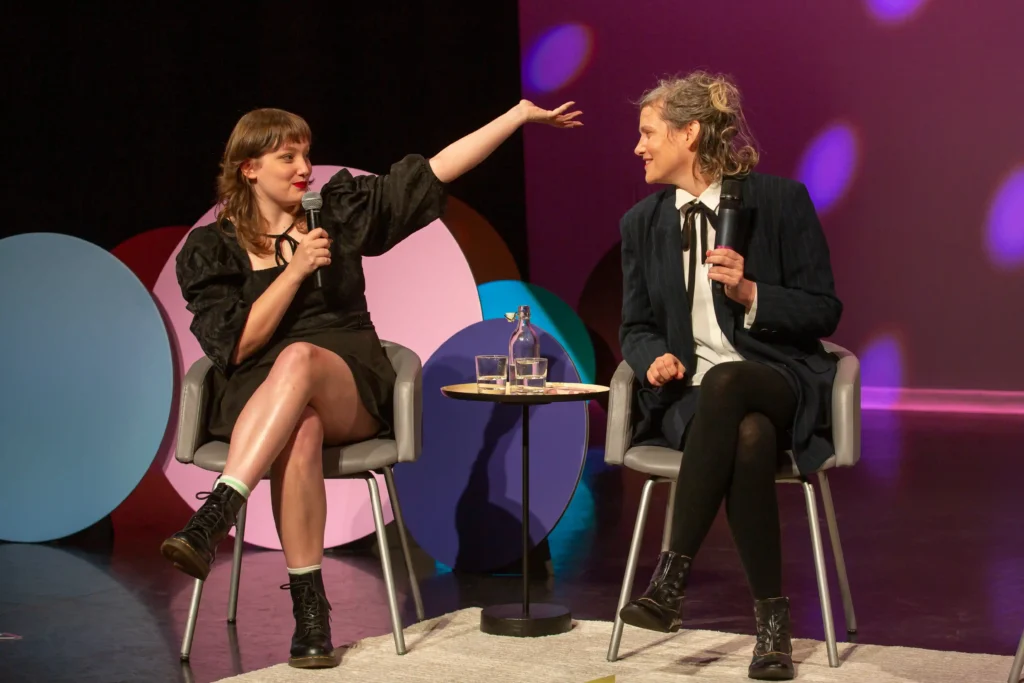
Youngblut, who took over from Wordfest founder Anne Green in 2015, says that what sets Wordfest apart from other literary festivals is its ability to adapt quickly. Among the changes Youngblut made when she took the helm was introducing annual programming, diversifying, and staying relevant.
“We changed with the times,” says Youngblut. “Our romance events are nothing like our non-fiction events. They have a different flavour. They have a different vibe, because we want it to be authentic with that audience, their enthusiasm, and what they want to get out of it.”
From shows that employ a talk show format — like “You Were Made for this Steady Brightness” — to theatrical productions, including “The Way We… Talk About Candy,” the Imaginairium’s success lies in creating programming that inspires its audience to both think and feel.
“It’s not going to exhaust you,” says Youngblut. “It’s actually going to invigorate you.”
Imaginairium Do’s and Don’ts
Heading to the festival for the first time? Check out Shelley Youngblut’s Imaginairium recommendations.
DO come by yourself. “Part of what made me fall in love with books is that I was that awkward, unpopular teen. It was books that were my friends, and I always wanted to be able to get out of my bedroom and get into the world. So it’s really important to me and the rest of the Wordfest team that no one ever feels alone or feels awkward. We are a community for you.”
DO try something new. “Be curious, go in with an open mind. There are going to be people that you know, go to those shows. But there are also going to be people that you’ve never heard of. Sample those shows too.”
DON’T stress about reading the book first. “We call the book ‘The t-shirt after a great concert.’ You’re coming for the ideas. If you love the ideas, take the book home. There are pop-up bookstores, so if you want to get the book, the book is there.”
DO talk to the authors. “A literary event is the only live arts experience where you are guaranteed to meet the artist. Isn’t that wild? The authors are sitting there after their shows, and they really want to talk to you. It’s a really meaningful part of the experience for them, and it’s the kind of thing you’ll never forget.”
